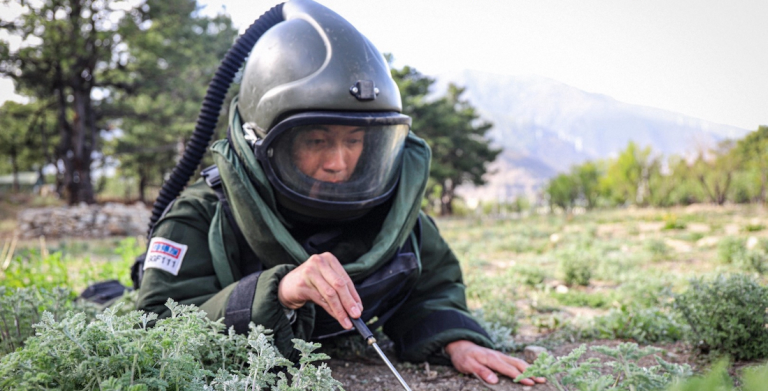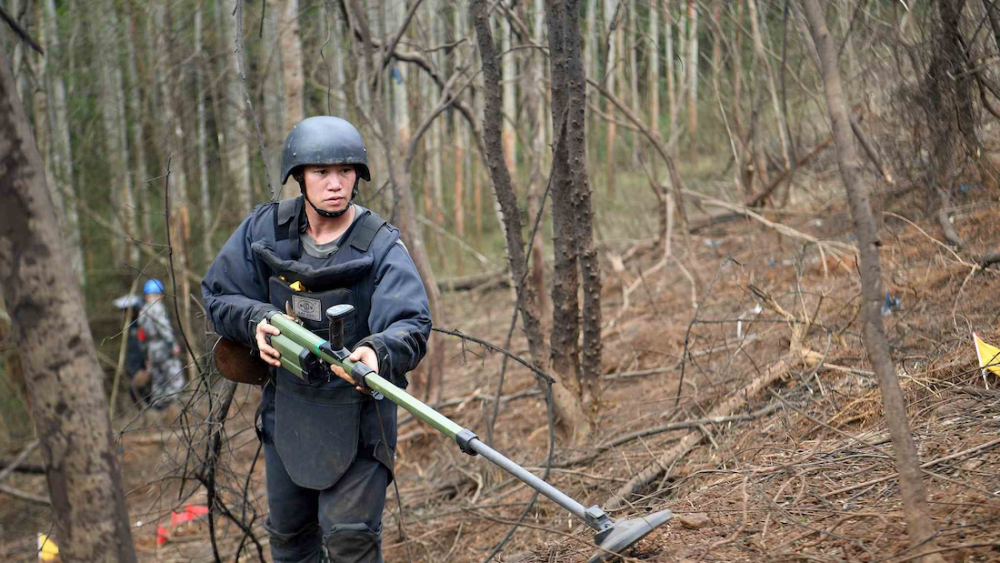
Beijing’s New Policy Raises Concerns Over Humanitarian and Strategic Implications
New York, N.Y.—The People’s Liberation Army (P.L.A.) has quietly updated its doctrine on land mine usage, signaling a potential shift in China’s military strategy. While official statements emphasize defensive measures, analysts warn the move could exacerbate global weapon proliferation and civilian casualties. The policy revision comes amid rising tensions in the Indo-Pacific and ongoing disputes over territorial claims in the South China Sea.
China’s updated military guidelines classify land mines as “essential
defensive tools,” reversing earlier commitments to limit their deployment.
A Strategic Pivot or a Humanitarian Risk?
The P.L.A. argues that mines are crucial for protecting border regions and strategic assets, particularly in contested areas like Taiwan and the Himalayas. However, critics, including the International Campaign to Ban Landmines (I.C.B.L.), accuse Beijing of backtracking on global disarmament efforts.
“This policy shift contradicts China’s previous support for mine restrictions,” says Dr. Elena Carter, a security analyst at the Stockholm International Peace Research Institute (S.I.P.R.I.). “The humanitarian consequences could be severe, especially in conflict zones where non-combatants are most at risk.”

The Global Mine Crisis Worsens
Land mines remain one of the deadliest legacies of war, killing or injuring thousands annually, mostly civilians.
While 164 nations have joined the Ottawa Treaty banning anti-personnel mines, China, the U.S., and Russia remain holdouts.
Beijing’s latest stance may encourage other nations to resist mine clearance initiatives.
“The P.L.A.’s decision undermines decades of progress,” says Mark Higgins, a United Nations disarmament advocate.
“If a major power like China legitimizes mine use, smaller militaries will follow suit.”

Military Necessity vs. Moral Responsibility

Proponents argue that mines are a cost-effective deterrent against invasions.
General Wei Fenghe, China’s former Defense Minister, has defended their use as a “necessary evil” in asymmetric warfare.
Yet, human rights groups highlight the indiscriminate nature of mines, which remain lethal long after conflicts end.
In Cambodia, Laos, and Vietnam, unexploded ordnance from past wars still claims lives.
If China expands mine deployment, experts fear similar long-term devastation in modern conflict zones.
What Comes Next?
The international community faces a dilemma: pressure China to reconsider or accept a new era of mine warfare. Diplomatic channels, including the U.N. Security Council, may address the issue, but consensus is unlikely given geopolitical rivalries. Meanwhile, NGOs are ramping up demining efforts in high-risk regions.
“The world cannot afford complacency,” warns Dr. Carter. “Without unified action, we risk normalizing weapons that disproportionately harm civilians.”
Summary for Audio File (75 words)
China’s military has revised its stance on land mines, calling them vital for defense. Critics warn this could increase civilian casualties and undermine global disarmament. While the P.L.A. justifies mines as strategic necessities, humanitarian groups highlight their long-term dangers. With major powers like China resisting bans, the future of mine warfare remains contentious. Will diplomacy prevail, or will more nations embrace these deadly weapons